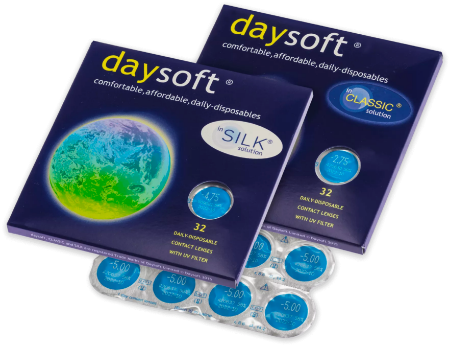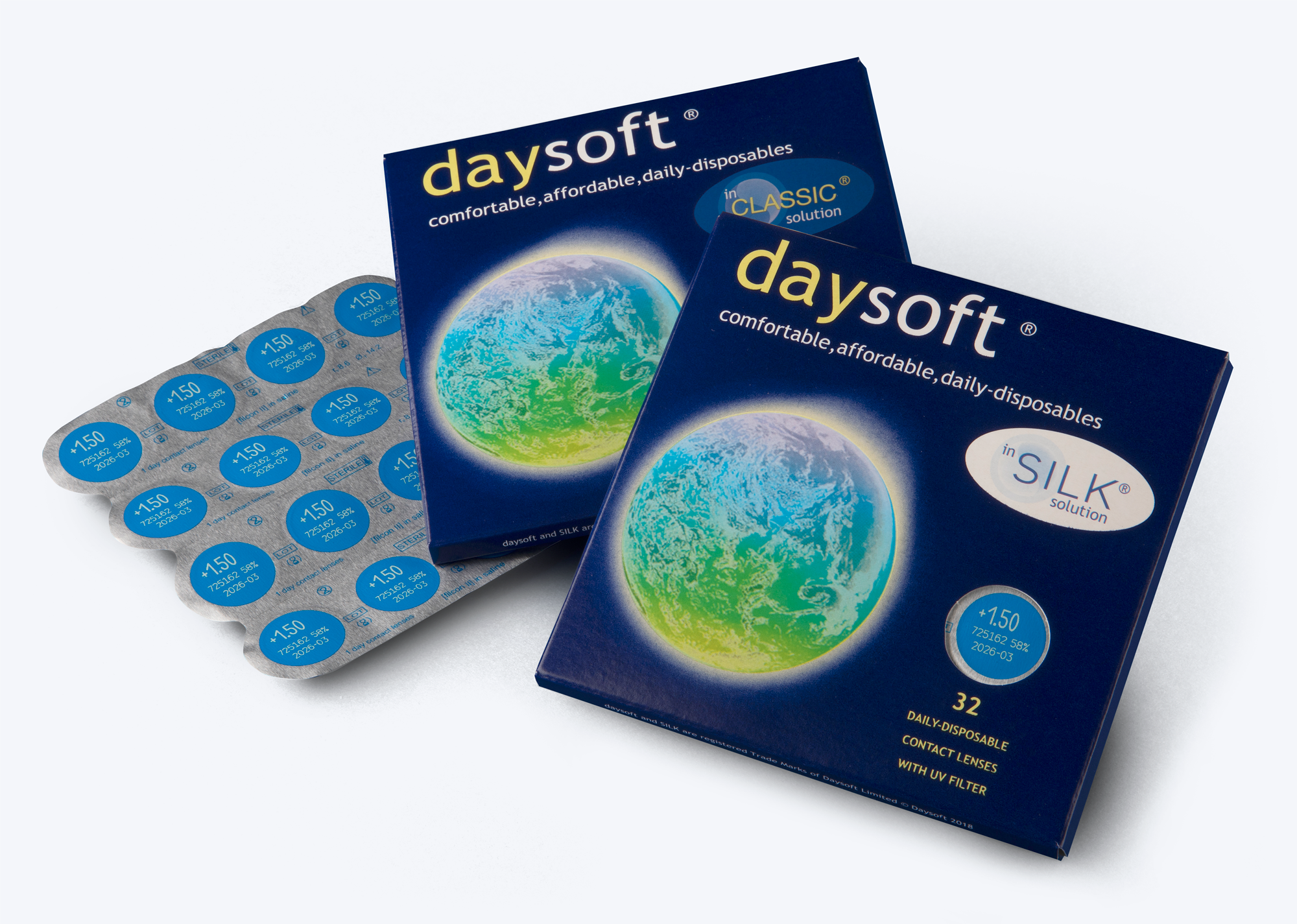Winter can take its toll on your eye health, especially if you’re a contact lens wearer. Colder, drier air outside combined with central heating inside can dry them out. At the same time, increased screen time due to less light and more inclement weather can escalate eye strain. And if you’re thinking of hitting the slopes and wondering can I wear contact lenses in snow, we hear you!
The good news is all these winter challenges are easily solved. Here’s our guide to wearing contact lenses, protecting your eye health and enjoying life this winter – whether you’re tucked inside by a cosy fire or outside shredding that fresh powder.

Stay hydrated
Staying hydrated is crucial during the winter. Dehydration can affect not only your overall wellbeing but also your eye comfort when wearing contact lenses. Cold, dry air and central heating will quickly dry out your skin, hair and eyes more quickly.
Drink plenty of water to maintain your body’s hydration levels, which can help keep your eyes moist and comfortable. Up your hydration even more if you’re exercising or working outside.
Eat healthily
Less daylight means less vitamin D, which can cause aches and pains and even impact our immunity. This can be why we’re all more likely to get ill in wintertime. Boost your immune system to prevent colds, flu and eye infections by eating the rainbow and including lots of eggs, lean meats, fish, nuts and seeds in your diet. Find out more about which foods are good for your eyes.
Incorporate these ingredients into comforting winter soups and hearty stews for delicious and nutritious meals that not only promote overall health and vision, but also make wearing contact lenses more comfortable.
Practice good hygiene
Winter often coincides with cold and flu season. Practice good contact lens hygiene by washing your hands regularly. Be cautious about touching your eyes to reduce the risk of eye infections.
If you’re a monthly contact lens user, up the hygiene factor with daysoft® daily disposable contact lenses. No soaking, cleaning or faffing: just a fresh, new pair every day.
Get enough sleep
Remember that quality sleep is your greatest ally, significantly aiding your eyes’ rejuvenation and alleviating the discomfort associated with dry eyes. Improved sleep quality makes it much simpler for your eyes to adapt to contact lenses. By prioritising overall body rest, you’ll be more energised in general. Find out more about healthy sleeping habits for healthy eyes.
Use a humidifier
Don’t forget that central heating can also make indoor air very dry. This dry air can exacerbate dry eye symptoms and discomfort, especially if you spend a lot of time indoors. Try to avoid sitting directly in front of any hot air currents and away from open fires or wood burners to prevent dry eyes.
Consider adding a humidifier to your home to maintain a comfortable level of humidity in indoor spaces, reducing the dryness associated with central heating.
Limit screen time
As Strictly graces our TV screens, our laptops become our workstations, and distant relatives FaceTime us for Christmas, it’s evident that winter has evolved into a season of extended screen exposure.
Contact lens wearers, in particular, are more susceptible to its effects compared with those who wear glasses or none at all. Long periods spent gazing at screens lead to a decrease in blink frequency, ultimately resulting in discomfort, including dry and irritated eyes, exacerbated by the dry indoor air from heating systems.
Follow the 20-20-20 rule – every 20 minutes, take a 20-second break to look at something 20 feet away. Here’s the low-down on eyes and screens: how to avoid eye strain.

Will contact lenses freeze?
If you’re planning on an escape to the slopes this winter, you’ll need to remember both sun and snow protection.
If the first question that springs to mind is ‘can I wear contact lenses in snow’, don’t worry. Yes, you can. But pack some snow goggles or sunglasses. They’re vital for protecting your vision and contact lenses from any snow flying into your eyes.
The second question may be: can contact lenses freeze? Rest assured, the answer is no. Your contact lenses won’t freeze or stick to your eyes in sub-zero temperatures.
When spending time outdoors in snowy or sunny conditions, always wear sunglasses that offer protection from damaging UV rays and glare from the snow. While it might be cold, the winter sun can still be intense, especially in snowy environments or at higher altitudes. daysoft® contact lenses provide UV protection, but additional sunglasses are essential for complete coverage.
Use moisturising eye drops
Cold, dry winter air can contribute to dry eyes, a common concern for contact lens wearers. Reduced humidity can lead to decreased tear production and evaporation of tears, which may result in discomfort and irritation.
To combat dry eyes, always carry contact lens-friendly eye drops. Lubricating eye drops can provide relief and maintain the moisture balance in your eyes.
Consult your eyecare professional
If you experience persistent discomfort, dryness or any unusual symptoms while wearing contact lenses in winter, consult your eyecare professional. They can provide tailored recommendations to address your specific concerns.
Wearing contact lenses in winter can be a seamless experience with a few adjustments and precautions. By addressing the challenges of the season and taking steps to protect and hydrate your eyes, you can enjoy clear vision and comfort even in the colder months. Check out our blog for more handy guides on contact lens care and eye health.



